




 |
   |
 |
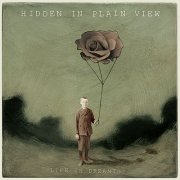 |
Life in Dreaming (2005, 41.19) **½/T½ |
|
| Bleed for You Ashes Ashes A Minor Detail The Point Twenty Below Garden Statement The Innocent Ones American Classic |
In Memory Top 5 Addictions Halcyon Daze |
|
Current availability:
Chamberlin used:
Hidden in Plain View were apparently 'emo', so now I know what that actually sounds like. It sounds like indie/punk, only with melodic vocals and doubtless heartfelt lyrics, only I wasn't listening. 2005's Life in Dreaming was their first album of two, featuring a distressing lack of variety across its length, which, even at only forty-odd minutes, seems a good bit too long. There aren't any standout tracks.
Patrick Warren's on Chamberlin again, with strings on A Minor Detail, strings and flutes on Garden Statement, a more major string part on The Innocent Ones and strings and cello on closer Halcyon Daze, making it probably the album's best feature. Given upon how many other albums you can hear a well-played Chamberlin if you so desire, you really don't need to hear this one, frankly. Reasonable Chamby use, but that's about it.
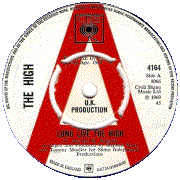 |
7" (1969) ***/TTT Long Live the High Beggar Man Dan |
Current availability:
Mellotron used:
The High were a particularly obscure, late-period UK psych outfit about whom very little is known, although it seems likely that they consisted of members of the recently-split Unit 4+2, not least Russ Ballard (who co-wrote the 'A'), en route to Argent. Their sole release, the hopefully-titled Long Live The High c/w Beggar Man Dan, is a decent enough, vaguely Bee Gees/Moodies-esque effort, destined never to trouble chart compilers, the flip being a slightly less twee proposition and rather better as a result.
The usual unknown band member/session musician plays Mellotron strings on both sides, with underwater ones on the 'A' and strident-to-the-point-of-distortion ones on the other side. While this has never (to date) been anthologised, both sides are knocking around either on YouTube or as downloads, should you wish to hear them, as evinced by this review.
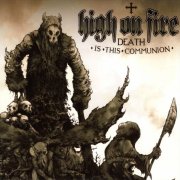 |
Death is This Communion (2007, 56.42) ***/T |
|
| Fury Whip Waste of Tiamat Death is This Communion Khanrad's Wall Turk Headhunter Rumors of War DII |
Cyclopian Scape Ethereal Return to NOD |
|
Current availability:
Mellotron used:
Matt Pike played in Sleep, who made one superb 'stoner' album in 1992's Sleep's Holy Mountain (****), splitting before the full resurgence of the style. He went on to form High on Fire, whose 2007 release, Death is This Communion, is their fourth studio album, featuring far more thrash/black metal tropes than Sleep, not least Pike's gargling-with-broken-glass vocals and bursts of high-energy riffing. I feel that some of the longer material (notably opener Fury Whip and the eight-minute title track) carry on rather longer than they should, although I doubt whether the band would agree.
Tom Matz plays Mellotron on DII, with obviously real string and cello parts running through the track, complete with solo parts at the end. Overall, this is an album that's never going to pass as 'hard rock'. This is unapologetically metal, take it or leave it, good Mellotron track or no good Mellotron track. As long as you approach it with that in mind, you're unlikely to be disappointed.
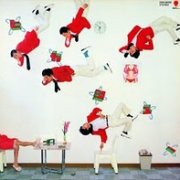 |
Hikashu (1979, 42.17/48.45) ***/½ |
|
| Rhetorics & Logics Model Losing My Future Taste of Luna 20seiki no Owarini Puyo Puyo Love Treatment Entenka |
Nazeka Burning Vinyl Ningyou Ame no Museum Youchuu no Kiki [CD bonus tracks?: Doro Doro Shiroi Highway] |
|
 |
Natsu (1980, 41.21) **½/T½ |
|
| Alternative Sun Fushigi no March Pike Iruka no Warau Morning Water Nazo no Jumon Oasis no Yume Mask |
Fuyaketa... Suika no Koushin Bino Pike Hitomi no Uta Glass no Dance 18sai no Don Quixote |
|
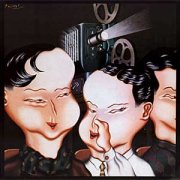 |
Uwasa no Jinrui (1981, 40.31) **½/T |
|
| To Aisukuron Uwasa no Jinrui Dekigoto Taion Atarashii Buzoku Yokisenu Ketsugou Outcast Nimaijita Otoko |
Koibito Shounin Vacances One of Us Nioi |
|
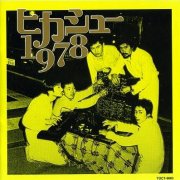 |
1978 (1996, 44.21) ***½/T |
|
| Puyopuyo At the End of the 20th Century Confusion Dorodoro Thrill Entenka Rhetorick and Logic A Vinyl Doll |
Losing My Future Yochu no Kiki Proud Mary |
|
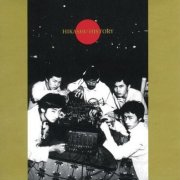 |
Hikashu History (2001, recorded 1977-93, 75.41) ***/½ |
||
| Tokyo Rain Nannimonai Otoko Hi-Ai-Ai Island Pool Muscles and Fruits Puyo Puyo Zo Azarashi Mask |
Suika no Koshin Ryuinji Rhetoric-S & Logic-S Kujira to Kamome Shuffer Pike Yochu no Kiki |
Great Conductor Biro Biro Rakuten Nervous Eyes Live With Viruses Fushigi o Mitsumete Chimera |
|
Current availability:
Mellotrons used:
Like so many Japanese bands who never really reached out beyond their home market, it's difficult to find hard information about Hikashu (or Hikasu), not least transliterations of their song titles. They formed sometime in the '70s, but didn't release anything under that name until their eponymous 1979 debut. Hikashu is, in many ways, a typical emergent synth-pop album, mixing genres like crazy (I mean, the Spaghetti Western theme on bonus track Shiroi Highway?) and covering Kraftwerk's The Model while getting the chords wrong. It isn't bad at what it does, although the monotone vocals become a little tiresome after a while and the whole thing's seriously under-produced, the drums being (deliberately?) almost inaudible throughout. Makoto Inoue adds background Mellotron strings to Puyo Puyo, although that would appear to be it.
1980's Natsu is a rather unappealing mixture of 'new wave', contemporary J-pop and ska, with a little synthpop thrown in, maybe like Devo on an off-day; I believe 'of it time' is the phrase. Despite only being regular vinyl length, it becomes tiresome after only a few tracks, although opener Alternative Sun isn't bad, ditto the choppy Iruka No Warau. However, I'm mystified by the popularity of Pike, apparently covered by several other acts. To my knowledge, Inoue on Mellotron again, with a brief but heavy-duty string part on Alternative Sun, a handful of string swells on Iruka No Warau, choirs on Oasis No Yume and background strings on Glass No Dance. While none of it's essential, it improves an otherwise rather dull album.
The following year's Uwasa no Jinrui starts off more promisingly with spacious opener To Aisukuron; sadly, it doesn't last and they quickly slip back into their default setting, the only other halfway decent tracks being Taion and One Of Us, which seems to be based on the scene from 1932's Freaks that also inspired The Ramones a few years earlier. Inoue plays even less Mellotron this time round, with nothing but a lush string part on To Aisukuron and distant choirs on closer Nioi, making it distinctly not worth it on those grounds.
As if to prove that their material deteriorated as their popularity increased, 1996's 1978, sounding like demos from that year, is actually pretty good, highlights including opener Puyopuyo, the crazed, sax-driven Thrill and Yochu No Kiki, although the less said about their 'version' of Creedence's Proud Mary the better. Someone (Inoue?) adds Mellotron to Puyopuyo, with a slow strings build-up towards the end of the track. It's difficult to know whether the contents of Tzadik's 2001 compilation, Hikashu History, have been previously released or not; few of them seem to be on the above albums, or at least, not in these versions. Amusingly, the label has picked material that make the band look far more 'out there' than their pop releases would indicate; certainly, there's nothing here as dullsville as the bulk of Natsu and Uwasa no Jinrui. Inoue gets to play Mellotron, but only just, with nowt but a few choir chords and flute notes on Shuffer, from '77.
You're not going to find any of the band's home market albums easily, at least not in physical form, but then, unless you're into Japanese noo wave, you're probably not going to want to anyway. Hikashu History should be rather easier to track down and may be worth it if you're more into that country's experimental scene, although they're no Ybo². There's at least another one supposed Hikashu Mellotron archive release, '98's Pre-Hikashu; review forthcoming when etc. etc.
See: Samples etc.
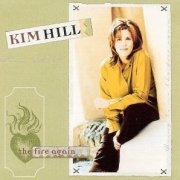 |
The Fire Again (1997, 47.06) *½/T½ |
|
| Nothing But the Blood Medley A Place for Us Make a Joyful Noise No One Like You I Need to Know Slip Away More Only One You |
Ruthless Perfection I Can't Believe Slip Away |
|
Current availability:
Mellotron used:
Kim Hill is a CCM artist, which as all you dedicated readers of this site (have you no lives?) know means: insipid Christian rubbish. OK, there are exceptions, but Ms Hill (do Christians use 'Ms'?) isn't one of them. 1997's The Fire Again is her sixth album, consisting chiefly of Biblical verses set to bland, entirely uninspired music, either upbeat (Nothing But The Blood Medley, No One like You) or balladic (I Need To Know, I Can't Believe), although Slip Away is a brief piano instrumental that still manages to sound completely schlocky. It starts off merely 'dull', before shifting into 'offensive' territory about halfway through, as the deeply unimaginative lyrical themes and appallingly bland music kick in properly, although I couldn't really say that 'kick in' would be an appropriate phrase. The only thing she has going for her, musically speaking, is an excellent contralto voice, although with material of this 'quality', I'm afraid it's somewhat wasted.
Phil Parlapiano plays Mellotron, with a very audible string part on A Place For Us and less of the same on No One like You. Believe me, you really, really do not need to hear this terrible album for its minor Mellotron content. Shite.
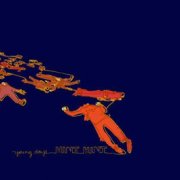 |
Young Days (2004, 45.50) **/T |
|
| Natural Collegiate Senator Blues Same Skies Long Branch, New Jersey Young Days Hawks Leviathan A Curse on You, Dear |
The City in Fast Forward Before the Beyond The Sky in Reverse |
|
Current availability:
Mellotron used:
Given that they're Seattle natives, it's possibly understandable that Hint Hint attempt to cross grunge with emo on 2004's Young Days, albeit with predictably painful results. Plus points? Jason Lajeunesse's nutsoid drumming, the only thing here that adds any excitement to anything. Minuses? Everything else, particularly Peter Quirk's laughably bad vocals, all pain and sincerity. Dreadful.
Leona Marrs plays real-sounding Mellotron, with a decent octave string part on Leviathan, also, possibly not coincidentally, the album's least awful track. I can't imagine why anyone not already a fan of this band from seeing them live would have any interest in hearing this album. I shall not do so again.
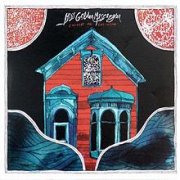 |
Country Hai East Cotton (2009, 48.20) ***/T |
|
| Hey Diamond Watch Out for the Cannonball John Has Gone to the Light O Nathaniel Boogie Boogie Isobel Lion Row |
Instant Light Resurrection Blues Tongue in Cheek |
|
Current availability:
Mellotron used:
When The Court & Spark split, Hiss Golden Messenger rose from the ashes, M.C. Taylor at the helm, taking alt.country and turning it inside out. Well, kind of. Their self-released debut, 2009's Country Hai East Cotton (released in the UK in edited form as From Country Hai East Cotton) is probably at its best on opener Hey Diamond, the country rock of O Nathaniel and the epic Lion, less exciting material including the rather slushy Isobel and Resurrection Blues, which strikes me as a failed experiment.
Matt Henry Cunitz plays his Mellotron on the album, with chordal flutes on Watch Out For The Cannonball; shame they couldn't have used it more, really. A mixed bag, then; sadly, it appears that the edited version retains some of its least interesting tracks.
See: The Court & Spark
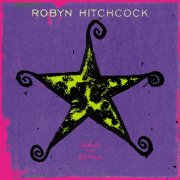 |
Jewels for Sophia (1999, 54.00) ****/T |
|
| Mexican God The Cheese Alarm Viva! Sea-Tac I Feel Beautiful You've Got a Sweet Mouth on You, Baby NASA Clapping Sally Was a Legend Antwoman |
Elizabeth Jade No, I Don't Remember Guildford Dark Princess Jewels for Sophia Mr. Tongs Don't Talk to Me About Gene Hackman |
|
Current availability:
Chamberlin used:
Robyn Hitchcock has had a slightly random career path, forming the magnificent Soft Boys in Cambridge in 1976, going on to make a slew of solo albums from the early '80s onwards, with or without his band The Egyptians, not to mention collaborations with members of R.E.M., amongst others. Jewels for Sophia is his twelfth post-Softies album, featuring his usual post-Syd surrealism and whimsy in large quantities, with songs of the lyrical and musical quality of Viva! Sea-Tac, NASA Clapping and Antwoman. Why is this man not famous? Too idiosyncratic, I suppose. Well done the general public. Again.
On the tape-replay front, Jon Brion plays Chamberlin on Dark Princess, with strings and, er, something not immediately identifiable. The reason you need to buy this isn't its relatively minor tape-replay use, but its excellent songs and because Robyn Hitchcock is well, well overdue some serious recognition. I'm still kicking myself for passing on a pile of his solo albums for two quid apiece a few years ago. Idiot.
See: Samples etc. | Kimberley Rew | Jon Brion | R.E.M.
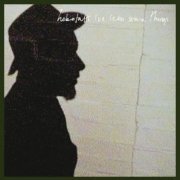 |
12"/CDS (2000, 10.19) ***/TT I've Seen Some Things Hymn to the Boards Kelley's Heels |
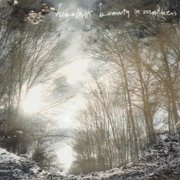 |
Beauty in Madness (2000, 46.30) ***/TT½ |
|
| Walks With Me I've Seen Some Things I Wait for You Letter Dime Motion Picture Scarecrow Jackdaw Never Said When |
Beauty in Madness When They Call Us in |
|
Current availability:
Mellotrons used:
2000's Beauty in Madness was Scots quartet Hobotalk's first full album (of four to date), although it was preceded by the I've Seen Some Things EP. They fall into the 'insipid pseudo-Americana' category, at least as far as I'm concerned; all country-inflected acoustic guitars and heartfelt lyrics about love and loss - you know the kind of thing. I usually like melancholy albums, but this one pushes the whole thing too far, almost into parody, in fact. It takes a lot to make me say this, but LIGHTEN UP, CHAPS!
Mellotron's credited on four tracks, largely played by Marc Pilley, although that's quite clearly Mellotron strings on opener Walks With Me, too. Of the credited tracks, Letter has cellos and flutes, while the only unidentifiable sound on Dime (I though these guys were Scottish?) is some muted brass that really doesn't sound like Mellotron. The title track has more flutes, played this time by guitarist Ross Edmond and When They Call Us In finishes things off with some ultra-melancholy strings.
On the EP, the instrumental Hymn To The Boards is actually the nicest thing I've heard them play, with spectral Mellotron strings over a quite beautiful melody, while Kelley's Heels has cellos and flutes over a rather less interesting song. Actually, while Beauty in Madness irritated the hell out of me, it has to be said that it's quite impeccably done; the Mellotron work's really quite nice and used liberally, not just the 'faint flutes on one track' trick that you get so often. So, if folky Americana from Scotland's your bag, go for it.
 |
7" [as Rob Hoeke Rhythm & Blues Group] (1969) ****/½ Double Cross Woman Babe, I Wanna Leave You |
 |
7" [as Rob Hoeke Rhythm & Blues Group] (1970) ***½/½ Next World War Walking Down the Railroad |
Current availability:
Mellotrons used:
Rob Hoeke (1939-1999) was a Dutch bandleader, working his way through several outfits between the '60s and the '90s, including the Rob Hoeke Rhythm & Blues Group. Under that name, he released two albums and a slew of singles, including 1969's Double Cross Woman c/w Babe, I Wanna Leave You. Both sides are excellent, the 'A' being a heavy boogie number, while the flip is a piano-led take on Zeppelin's recently-released Babe, I'm Gonna Leave You, many of the original's arrangement quirks present and correct. This might be a good place to throw in that Robert Plant has wryly commented on how little sense the lyric makes. (I paraphrase): "Am I leaving? Am I staying? What the hell am I doing!" Someone (possibly Jan Vennik) plays a brief Mellotron string part on the 'A', most likely the much-utilised Hilversum Phonogram Studio M300.
The following year brought Next World War c/w Walking Down The Railroad, another heavy blues effort, rather reminiscent of Cream's I Feel Free, if I'm going to be honest (and I think I should), the flip being rather more prosaic. Vennik plays Mellotron on the 'B', with a brief, upfront strings part, definitely from that M300. Hoeke used it (I presume) on 1972's Ten Years From Countdown: Full Speed, too, credited to The Rob Hoeke Boogie Woogie Trio, which I haven't heard. More news when etc.
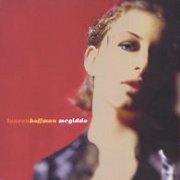 |
Megiddo (1997, 39.00) **½/TT |
|
| Blood Rock Star Lolita Fall Away Cold and Gray Hope You Don't Mind Strange Man Persephone |
Alive The Cannibal Ed Build a Home The Ashram Song |
|
Current availability:
Chamberlin used:
Lauren Hoffman was an impossibly young twenty when she recorded her debut album, Megiddo, although she seems to've managed to avoid the usual clichés into which American (in particular) female performers of that age often fall. In other words, no Alanis or Fiona Apple tricks here. Unfortunately, unlike many other reviewers, I can't say I find her material that exciting, to the point where, although the album is under forty minutes long, I eventually found myself wishing it would finish just that bit sooner.
The inimitable Jon Brion plays Chamberlin on several tracks, mixing engineer Ethan Johns chipping in on closer The Ashram Song. Blood has an effective string part, with a couple of seconds of solo male voice at the end (not a sound it's easy to miss...), while Lolita has what sounds to my ears like uncredited Chamby sax and possibly cellos. I can't hear anything obvious on the single, the pointed Rock Star, or Cold And Gray, although it's definitely cellos on The Ashram Song, with a string part towards the end.
Cosmic Hoffmann (Germany) see: |
 |
 |
Crawling Tall (2001, 42.35) ***/T |
|
| Messing With the in Between Rope-a-Dope When the Hammer Falls Thursday Night Screamer Dance Card Pound of Misery The Curse of the Incredible Top of the Tank |
Big Little Man Parade Technique Gentle Giant Crawling Tall |
|
Current availability:
Mellotron/Chamberlin used:
Unlikely as it seems, it appears that the Minneapolis native Pete(r) Hofmann behind 2001's Crawling Tall is the same Minneapolis native Pete Hofmann (with the same unusual spelling) who now plays solo classical guitar at events. Well, we all have to make a living... But do they look alike?, I hear you cry. They don't look dissimilar, but twenty-something years can change a man. Anyway, the album is a kind of alt./Americana/singer-songwriter effort, good at what it does, possibly at its best on Rope-A-Dope, The Curse Of The Incredible, the Clavinet-driven Top Of The Tank and Parade Technique's Americana.
Hofmann plays Third Ear recordings' Chamberlin M1 and MkVI Mellotron, with background Chamby vibes on Rope-A-Dope, brief Mellotron and Chamby string lines on When The Hammer Falls and Chamby cellos and Mellotron choir on the closing title track, to reasonable effect.
Official site (assuming it's the same guy)
 |
Snivelization (1994, 59.05) ***/T½ |
|
| A Bellow From Below Glory Riding on LSD Kick Out the Hogg Astronomy on Rye Long Haircuts Lumps Sombre The Sound of Death |
Spunky Manjuice Rise From the Dead Rapture † (bonus track) |
|
Current availability:
Mellotron used:
British music journo Edwin Pouncey seems to be keen on alter-egos, his best-known being cartoonist/comic artist Savage Pencil, although Ether Hogg appears to have been a one-off. Snivelization is a thoroughly bizarre album with a Rocket From the Crypt connection (both playing and composition), featuring little, if any actual singing, though plenty of spoken-word vocals, not least the declamatory pornography of Spunky Manjuice. Right... Musically, opener A Bellow From Below is a solo bagpipes tune (well, can you imagine it in a full band setting? Er, AC/DC...), Kick Out The Hogg is fucked-up r'n'b and Astronomy On Rye is a ten-minute dronefest, much of the rest probably falling under the non-category of 'industrial jazz'. I said it was weird...
Speaking of alter-egos, someone calling themselves Nosmo King (a nom-de-plume used by various entertainment figures in the past) plays Mellotron, as does Pouncey (as Savage Pencil), with skronky strings on Glory Riding On LSD and a repeating strings part (combined with real cello) on Astronomy On Rye. It was 1994, it sounds real, it stays here unless I should discover it's bogus. One of this site's odder albums, against stiff competition.
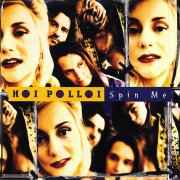 |
Spin Me (1993, 39.50) **/T |
|
| Dance Love Shine Down Back to Zero Angel Show Me Lie in the Temple Love for the Living Turn Turn Turn |
Spin Me Take Me Home |
|
Current availability:
Mellotron used:
Kiwi CCM, anyone? Hoi Polloi were NZ's contribution to the Christian alt.rock scene (!), 1993's Spin Me being the second of their three albums. Stylistically, we're talking an unholy (ha! See what I did there?) cross between U2 and the most generic early '90s alt. outfit you can think of. Worst track? A tall order, but drippy ballad Show Me possibly tips the scales. There are no best tracks.
John Mark Painter does his usual Christian Mellotron thing, with background strings on opener Dance, a heavily-reverbed flute melody on their take on The Byrds' take on Pete Seeger's Turn Turn Turn (via Ecclesiastes, of course) and occasional string chords on the title track. Deservedly largely forgotten, the generic and wildly unoriginal Hoi Polloi are unlikely to trouble many music historians.
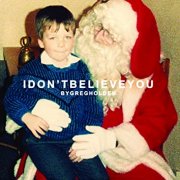 |
I Don't Believe You (2011, 41.43) ***/½ |
|
| I Don't Believe You The American Dream Following Footsteps As Far as I Can Tower Terrain Hell & Back Empty Hands Coney Island |
Are We Wasted Bar on A The Lost Boy |
|
Current availability:
Chamberlin used:
Despite being based in LA, Greg Holden is a Scottish-born Brit, moving to the States in his twenties. 2011's I Don't Believe You is his second album, effectively a singer-songwriter record, utilising various American tropes in its songwriting, notably country/Americana, an influence on one of the better tracks, The American Dream, other highlights including Coney Island and Bar On A.
Patrick Warren does his usual Chamberlin thing, with literally two flute chords on The American Dream and upfront flutes on Hell & Back, although I suspect the album's various string sounds are real. I was expecting a horrible 'songs only fit for use on shitty US TV shows' kind of record here, but didn't get it, to my delight. Worth hearing.
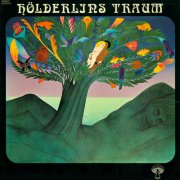 |
Hölderlin's Traum (1972, 34.44) ***½/TWaren WirPeter Strohhalm Requiem für Einen Wicht Erwachen Wetterbericht Traum |
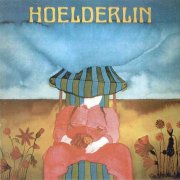 |
Hoelderlin (1975, 42.10) ***½/TTSchwebebahnI Love My Dog Honeypot Nürnberg Deathwatchbeetle |
Current availability:
Mellotrons used:
Hölderlin, as they were originally known, released their first album, Hölderlin's Traum, in 1972, mixing folk influences into their fairly Germanic take on progressive rock, which isn't to confuse them with 'Krautrock', a different kettle of fish altogether. It's not a bad album - some would say a classic of the era; it certainly finds its own 'dark folk' style, well away from what most other bands were doing at the time. The only Mellotron, though, from Jochen Grumbkow, is on opener Waren Wir, kicking in along with the whole band after a typically gentle intro.
After considerable label hassles, it took the respelled Hoelderlin three years to follow their debut, finally producing their eponymous second album in 1975. A far rockier proposition than their first, Hoelderlin opens with the excellent Schwebebahn, with duelling viola (from Christoph Noppeney) and Mellotron strings (from the also respelled Joachim Grumbkow), which turns out to be the album's Mellotronic highlight. Honeypot has a few background string chords, while, apart from what may possibly be some brass at the beginning, the seventeen-minute Deathwatchbeetle features only a short (but potent) string part towards the end.
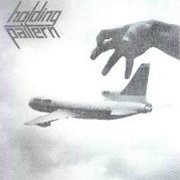 |
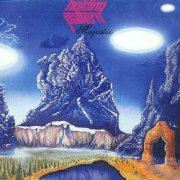 |
Holding Pattern [a.k.a. Majestic] (1981/90, 28.53/77.10) ***½/TT |
|
| Another Point of View Honor Before Glory Jigsaw Dream Out of the Tunnels [CD adds: From the Clouds Majestic Iraqiroll |
Was it You? Mercenary Tunnels Arrival Around the Square Ten Passed Midnight Ground Zero] |
||
Current availability:
Mellotrons used:
Holding Pattern were a late-period US prog outfit, led by guitarist Tony Spada, who released a self-titled mini-album in 1981, reissuing it on CD nearly a decade later, retitled Majestic and expanded to over an hour. The music on the original four-track release is instrumental guitar-led prog, less complex than many US bands, Out Of The Tunnels being its standout track, bringing exemplary US proggers Happy the Man to mind. I don't know when the multifarious extra tracks on the CD were recorded, but they cover a variety of styles, with vocals on a handful, a couple even recorded live.
Mark Tannenbaum played Mellotron, amongst other keys, with some epic string work on Honor Before Glory, underpinned by Taurus pedals and a few background string chords on Out Of The Tunnels. Of the extra tracks, there's some strings and choir on the gentle Was It You? and some full-on choirs on the intro to Mercenary, though that would appear to be about it, despite some slightly Mellotronnish strings on a couple of other tracks. I've seen several rave reviews of this on the 'Net, but it's not really inventive enough to float my personal boat, although I've heard an awful lot worse. I believe Majestic (which came in an LP-sized case) is long unavailable, but apparently the four-track Holding Pattern has just been reissued. Weird.
See: Tony Spada
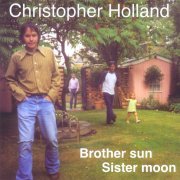 |
Brother Sun Sister Moon (2003, 51.02) ***/TTT½ |
|
| Summer Girl Gone With the Wind Same Way Again Daffodil Sky Miss U No Disco Kid Long as We're Together Don't Walk Away |
Without You in My Life Velvet Zone Hey You Love is the Answer It'll Be Alright Lost in Space Other Side of the Sky This is the Way Forward |
|
Current availability:
Mellotron used:
Christopher Holland is the younger brother of the irritatingly smug host of Later With Jools Holland (late-night UK music show for non-residents), growing up with his elder sibling's Squeeze colleagues wandering in and out of the family home. I have to say it shows in the songwriting on Brother Sun Sister Moon; classic British pop mixed with rather unnecessary white-boy funky stuff, which tends to spoil it a bit, unfortunately. The end result is an album that starts really nicely (Summer Girl is gorgeous), but quickly gets bogged down in rather dated mid-'70s mainstreamish stuff, which didn't sound particularly good at the time, to be honest. Holland's voice is a little bland, though serviceable enough and, as if to prove my point, rather better on the softer material. It seems the album was done on something of a budget - it sounds fine, but the sleeve looks like someone with little knowledge of graphics knocked it up on their home PC. Those fonts...
In a recent magazine interview, Holland mentions his love of 'classic' keyboards and indeed, Hammond, Rhodes and Moog (?) are all to be heard, as is a Mellotron, which can be heard on about half of the tracks here. He favours the flutes, with several really upfront parts, although the strings crop up here and there, too. Real? I think so, although recent pics of a Memotron on his Facebook page are slightly concerning. Although Holland crams sixteen tracks into fifty minutes, fewer attempts at funkiness would've made a nice, short album heavier on really good material. As it is, I can recommend maybe half of this, with the opening and closing tracks probably being the best. Reasonable.
See: Samples etc. | Squeeze